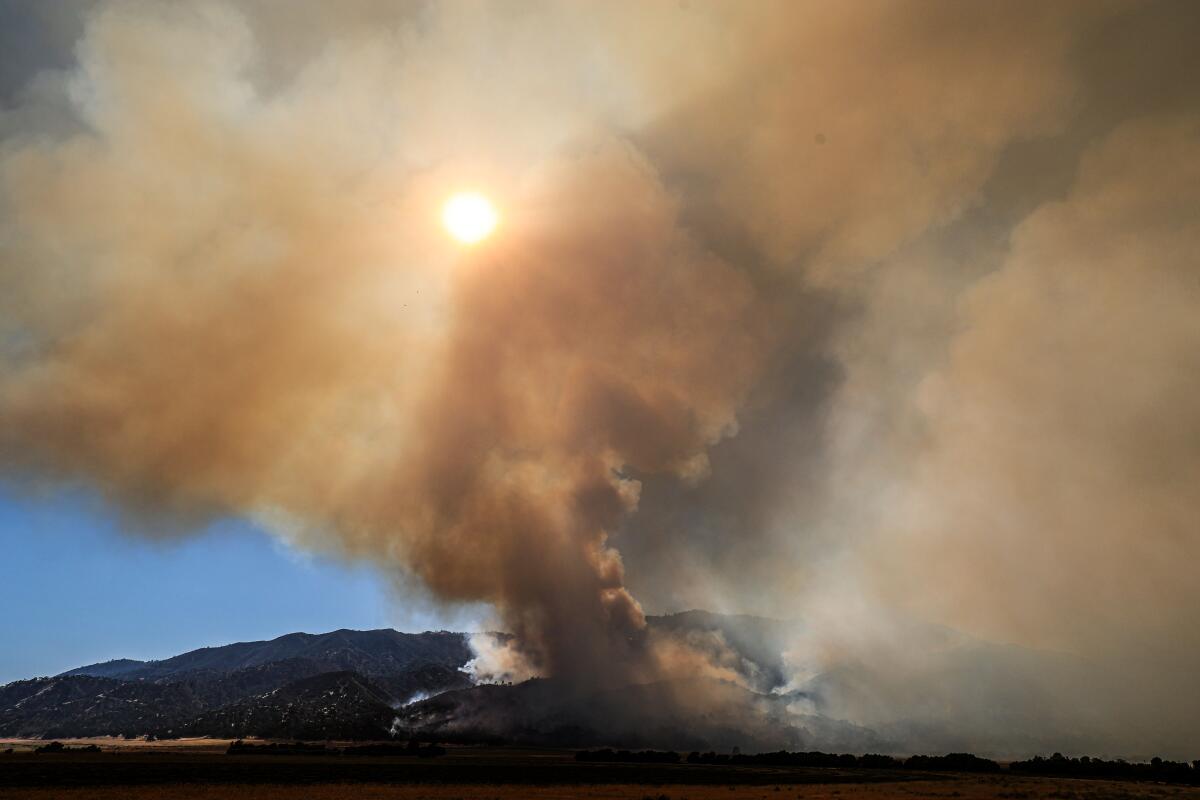Here’s what’s hampering (and could help) forests as fire season heats up
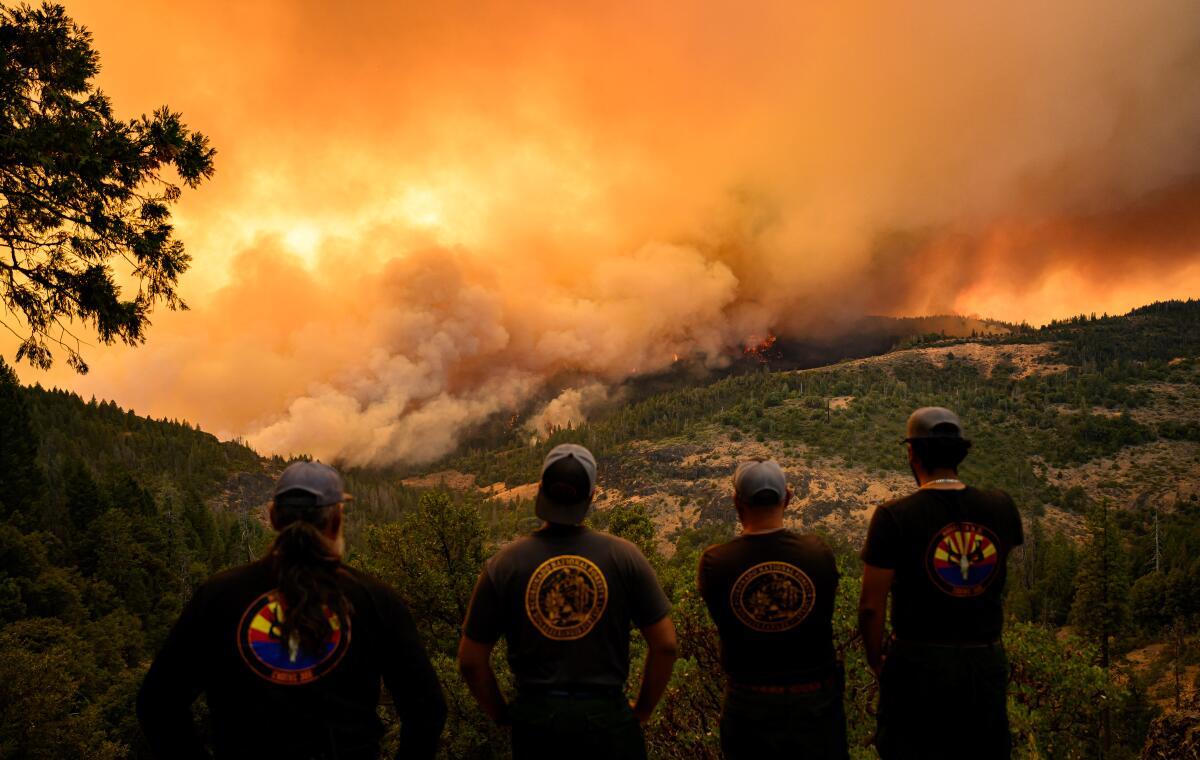
Good morning. It’s Friday, Aug. 16. Here’s what you need to know to start your day.
- A deputy forest fire management officer gives insight on fire season
- Authorities charged 5 people in connection to the death of Matthew Perry
- Escape the heat with these 8 L.A. night hikes 🌝
- And here’s today’s e-newspaper
You're reading the Essential California newsletter
Our reporters guide you through our biggest news, features and recommendations every morning
You may occasionally receive promotional content from the Los Angeles Times.
The unique challenges of this year’s fire season
The Western U.S. is in the heart of fire season and, unlike the last two mild years, 2024 is bringing big burns.
The Park fire, now the fourth-largest in state history, has scorched more than 429,000 acres across four California counties and destroyed hundreds of structures.
Conditions are worse in neighboring Oregon, which set a modern record with roughly 1.5 million acres burned from nearly 1,400 fires this year. The vast majority of those blazes were started by humans.
We wanted to understand the challenges of this year’s season and how officials are adapting their approach to firefighting — or, more accurately, how they’re adopting centuries-old Indigenous practices in hopes of living in harmony with fire.
I spoke with Seth Mitchell, a deputy forest fire management officer with the U.S. Forest Service based in Los Padres National Forest. Here are a few takeaways from our conversation.
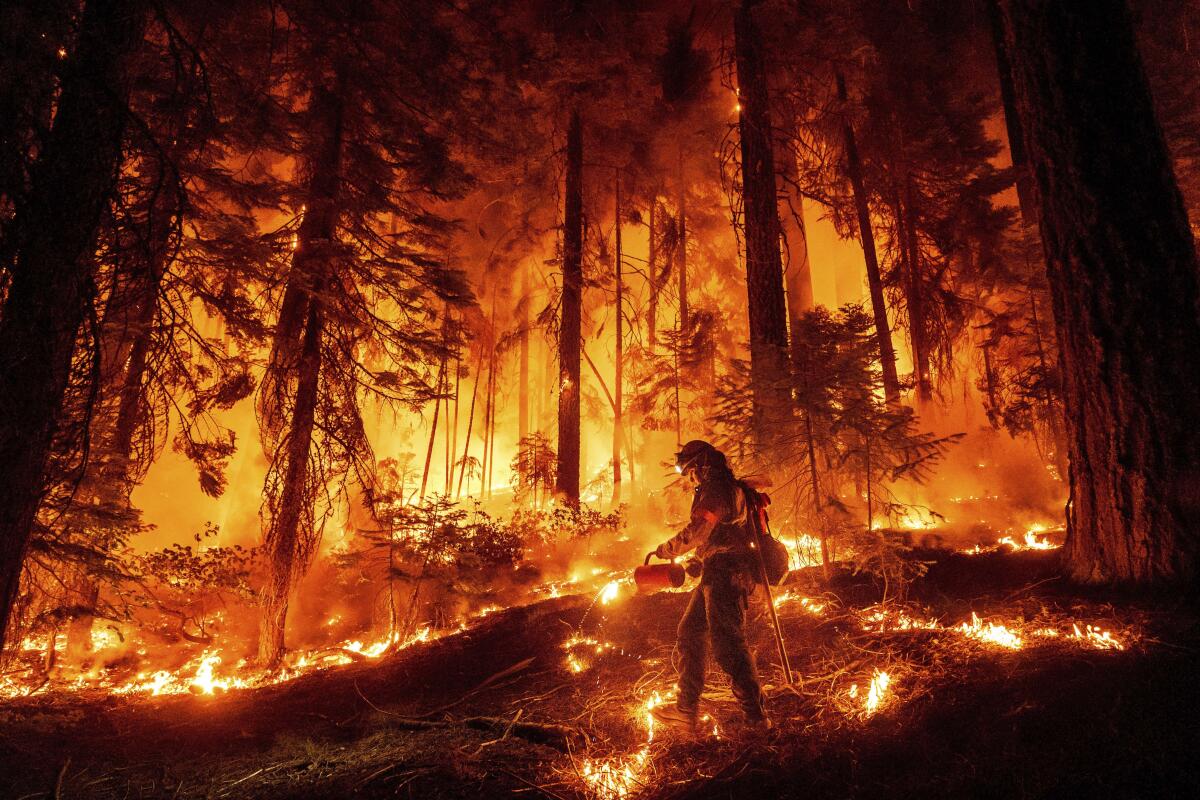
This year’s season came in hot
Two back-to-back wet winters brought much-needed moisture to wild spaces, but the epic rain also supercharged the growth of grasses and shrubs.
Combine all that fire fuel with this summer’s slate of heat waves and recent windy conditions and you get a recipe for large grass fires, Mitchell said. Several desert blazes, plus the Post and Lake fires, “really kicked us off to an early start to our fire season,” he said.
Although the Golden State hasn’t seen a high number of fires so far compared with this time in 2020 and 2021, other parts of the West are experiencing major incidents, such as the fires in Oregon.
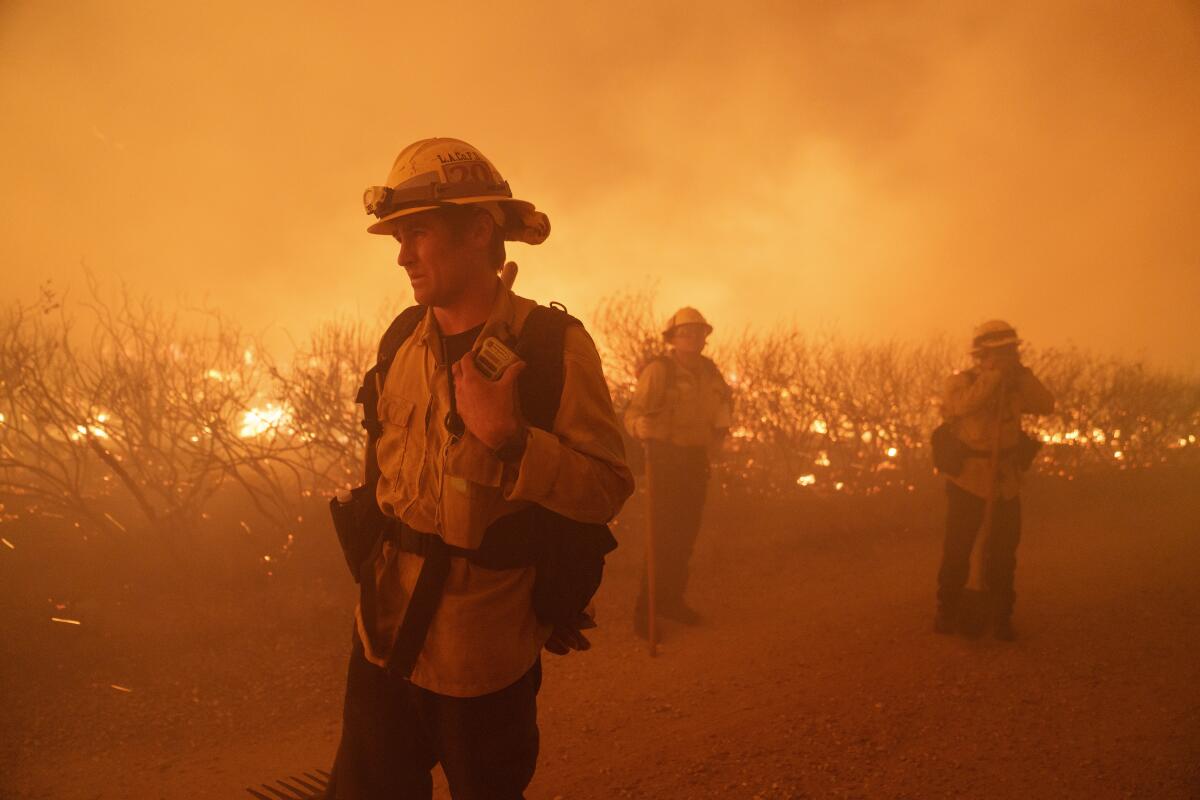
That has stretched firefighting crews thin “battling several fronts across the nation,” Mitchell explained, right in the crux of fire season.
“We have fires happen every day — and nobody really knows about it — that had potential to be catastrophic fire, but we had people in the area and available to stop it before it got big,” he said. “But then you get these larger fires…. It makes it more challenging to stop those smaller fires from becoming bigger ones.”
The biggest challenge remains the human element
Weather and climate conditions prime the tinderbox, but more often than not, we’re the ones striking the match.
“Humans are basically the leading cause of wildfire and the majority of wildfires start on private land and move into forested areas,” Mitchell noted. “Most people have this perception that wildfires start in the wildlands, then move on to communities, but it’s actually the opposite.”
Cal Fire estimates that 95% of wildfires are caused by humans, including from carelessness, deliberate ignitions and infrastructure failures.
Messaging is another big challenge, Mitchell shared.
People who live in the wildland-urban interface, where homes and wild spaces meet and fires are a serious risk, have mostly come around to the need for defensible space and controlled burns, he said. The bigger issue: the influx of weekend and holiday visitors from denser urban areas, to whom fire dangers may not be top of mind.
“If you ever go up San Gabriel Canyon on a holiday weekend, you will see a giant line of pickup trucks with barbecue grills in the [beds],” Mitchell said. “All those barbecues are an ignition source.”
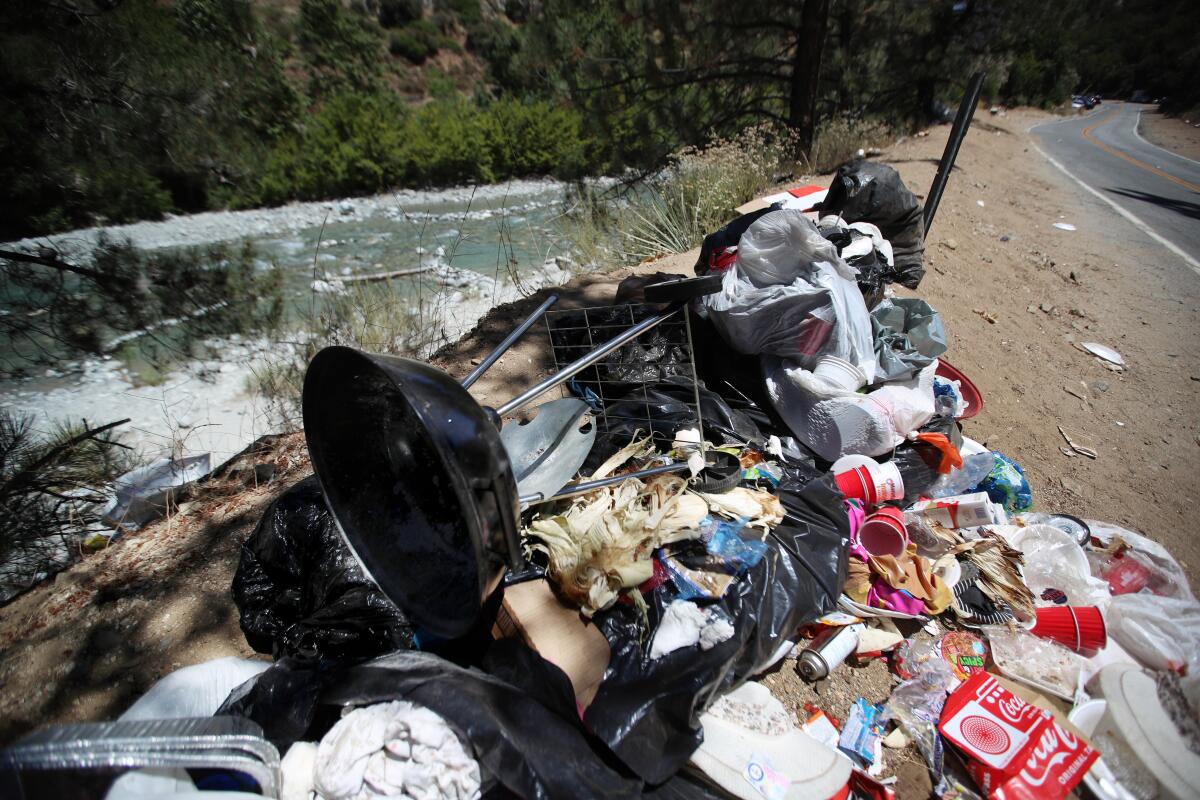
Smokey Bear can only reach so many (no matter how much of a smokeshow they make him).
One key solution? Fighting fire with fire
After decades of suppressing fire, federal and state forest officials have been returning to an approach that had been used by Indigenous groups for centuries.
Prescribed (or controlled) fires work by clearing forests of excess vegetation to reduce the risk of future fires sparking or spreading out of control. They also promote healthier ecosystems, making forests more resilient.
That tradition “kept our fire moderated” and in a natural cycle, Mitchell explained. But human development and government firefighting policies “adjusted that tempo,” contributing to the more frequent and devastating fires we’re experiencing today.
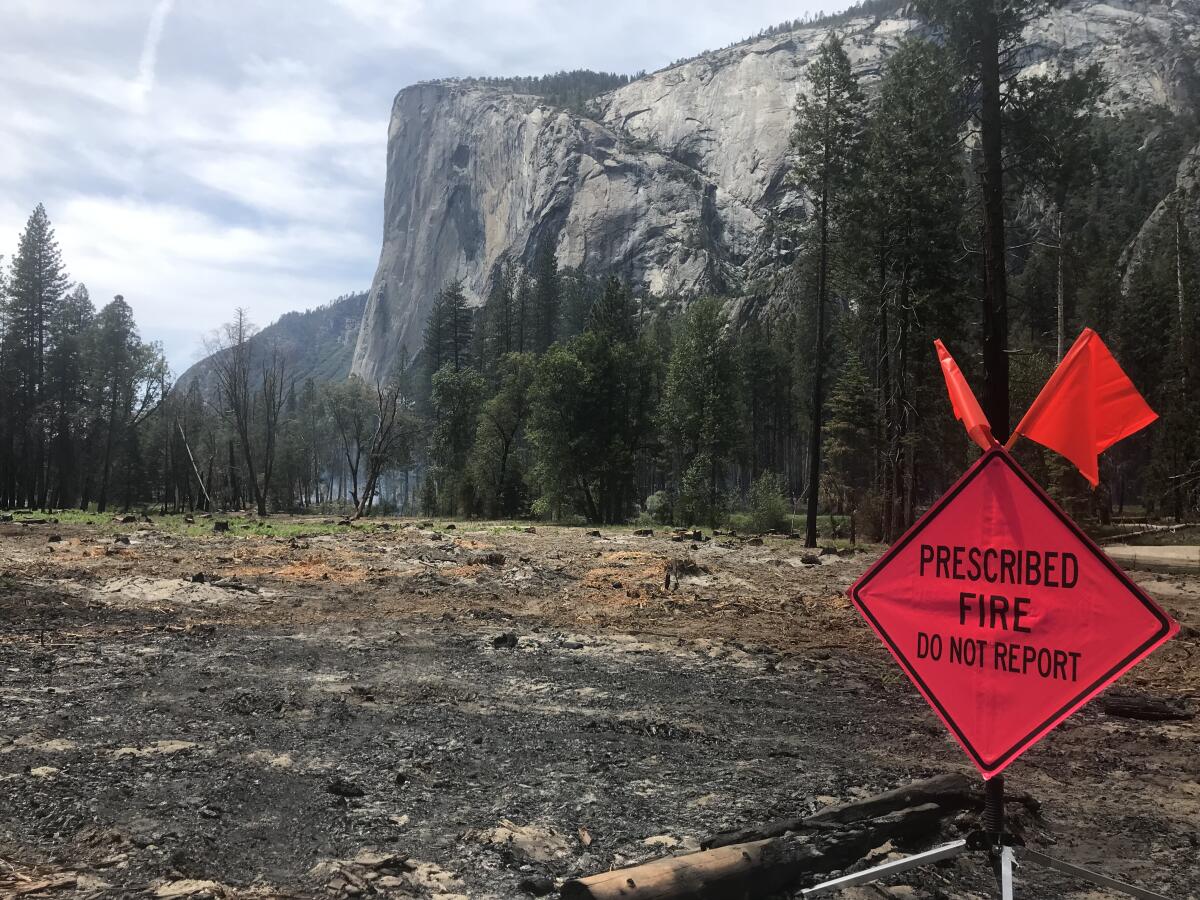
“The mindset after the fire seasons of ‘20 [and] ‘21 has really come around quite a bit,” Mitchell told me. “But [conducting prescribed burns] takes money and it takes time, and it takes people to do it.”
President Biden’s 2025 federal budget boosted funding for wildland firefighting to “help address long-standing recruitment and retention challenges [and] increase the Departments’ capacity to complete critical risk mitigation work.”
“The state and the federal government have really come together and made this a national priority,” Mitchell said. “They’re starting to give us more tools for the job. There’s more acceptance from the community. There’s a better understanding from all fire agencies [that] this is what we need to be doing. I think everybody’s moving in the right direction.”
But climate change is also cutting into their efforts, he noted.
“Our seasons aren’t what they used to be,” he said. “The colder times of year are now getting a little bit warmer, and [crews] have smaller windows to do prescribed fire treatment.”
Today’s top stories
Matthew Perry’s death
- A dealer known as ‘Ketamine Queen’ and 2 doctors were among 5 people charged in Matthew Perry’s death
- Here’s what we know about the people charged in his death.
- Will the arrests in Perry’s death burst L.A.’s ketamine bubble?
Earthquakes
- Los Angeles’ building earthquake retrofit data have been outdated for years, a Times investigation uncovered
- A magnitude 3.9 earthquake hit Lake Elsinore.
- A dangerous L.A. fault system rivaling the San Andreas is tied to recent earthquakes.
Politics
- From humble Long Beach beginnings, Rep. Robert Garcia (D-Long Beach) emerges as national political star
- A new poll shows most California voters want to see tougher punishments for theft and fentanyl crimes.
Extreme weather
- As La Niña strengthens, forecasters warn that drought could return.
- Halfway through the ‘danger season,’ nearly all of America has been touched by extreme weather
Real estate
- The Simi Valley house where ‘Poltergeist’ was filmed is for sale. ‘No ghostly antics,’ the Realtor promises.
- This Orange County city has the hottest housing market in the country
More big stories
- Search warrants issued and a gang was targeted in the killing of ‘General Hospital’ actor Johnny Wactor.
- 1.45 million California students are chronically absent. Can recess and cash get them back?
- Olympic flags are headed to L.A. City Hall. Not everyone is happy.
- Newsom calls for a new oil refinery mandate in California.
- Peter Marshall, affable host of NBC’s original ‘Hollywood Squares,’ died at 98.
- AI-powered deepfake nude websites are targeted by San Francisco city attorney’s lawsuit.
Get unlimited access to the Los Angeles Times. Subscribe here.
Commentary and opinions
Michael Hiltzik: The COVID lab-leak claim isn’t just an attack on science, but a threat to public health.
Sammy Roth: Can AI dream up a more sustainable Los Angeles?
Bill Plaschke: IOC should do the right thing for once, and let Jordan Chiles keep her Olympic medal.
Mary McNamara: The arrests in Matthew Perry’s death expose a system built to prey on addicts.
Today’s great reads
Chippendales vs. Strippendales: The battle over a male strip club empire. After the Chippendales male stripping empire ran into trouble, it left a web of family drama, a competitor called Strippendales and legal action that continues.
Other great reads
- Cheaper alternatives to Ozempic are flooding the weight-loss market. Are they safe?
- Hollywood is slowly getting back to work, but the days of peak TV aren’t coming back.
How can we make this newsletter more useful? Send comments to [email protected].
For your downtime
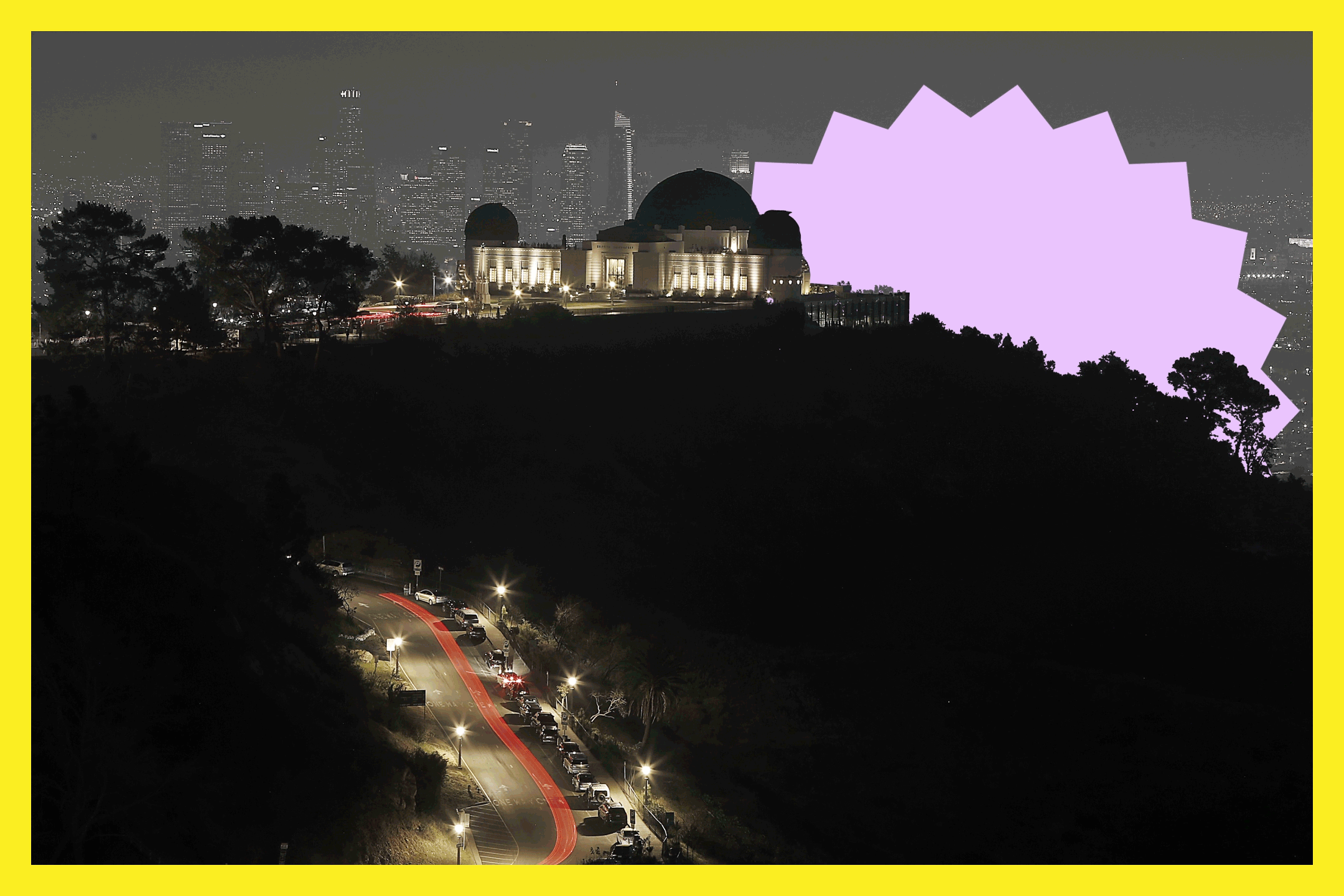
Going out
- 🎤 8 L.A. night hikes to escape the heat and experience awe
- 🍿 Intuit Dome, the Dude, ‘Lords of Dogtown’ and the best L.A. culture on tap this week
- 🎭 Pop culture and populist revolt collide in Old Globe’s thrilling ‘Henry 6’
Staying in
- 📺Review: For a murder mystery, ‘Bad Monkey’ sure knows how to have a good time.
- 🧑🍳 Here’s a recipe for Cacao Mexicatessen Cilantro Lime Rice
- ✏️ Get our free daily crossword puzzle, sudoku, word search and arcade games.
And finally ... an important photo
Send us photos that scream California and we may feature them in an edition of Essential California.
Today’s great photo is from staff photographer Robert Gauthier of smoke from the Borel fire obscuring Breckenridge Mountain.
Have a great day, from the Essential California team
Ryan Fonseca, reporter
Defne Karabatur, fellow
Andrew Campa, Sunday reporter
Kevinisha Walker, multiplatform editor and Saturday reporter
Christian Orozco, assistant editor
Stephanie Chavez, deputy metro editor
Karim Doumar, head of newsletters
Check our top stories, topics and the latest articles on latimes.com.
Sign up for Essential California
The most important California stories and recommendations in your inbox every morning.
You may occasionally receive promotional content from the Los Angeles Times.


